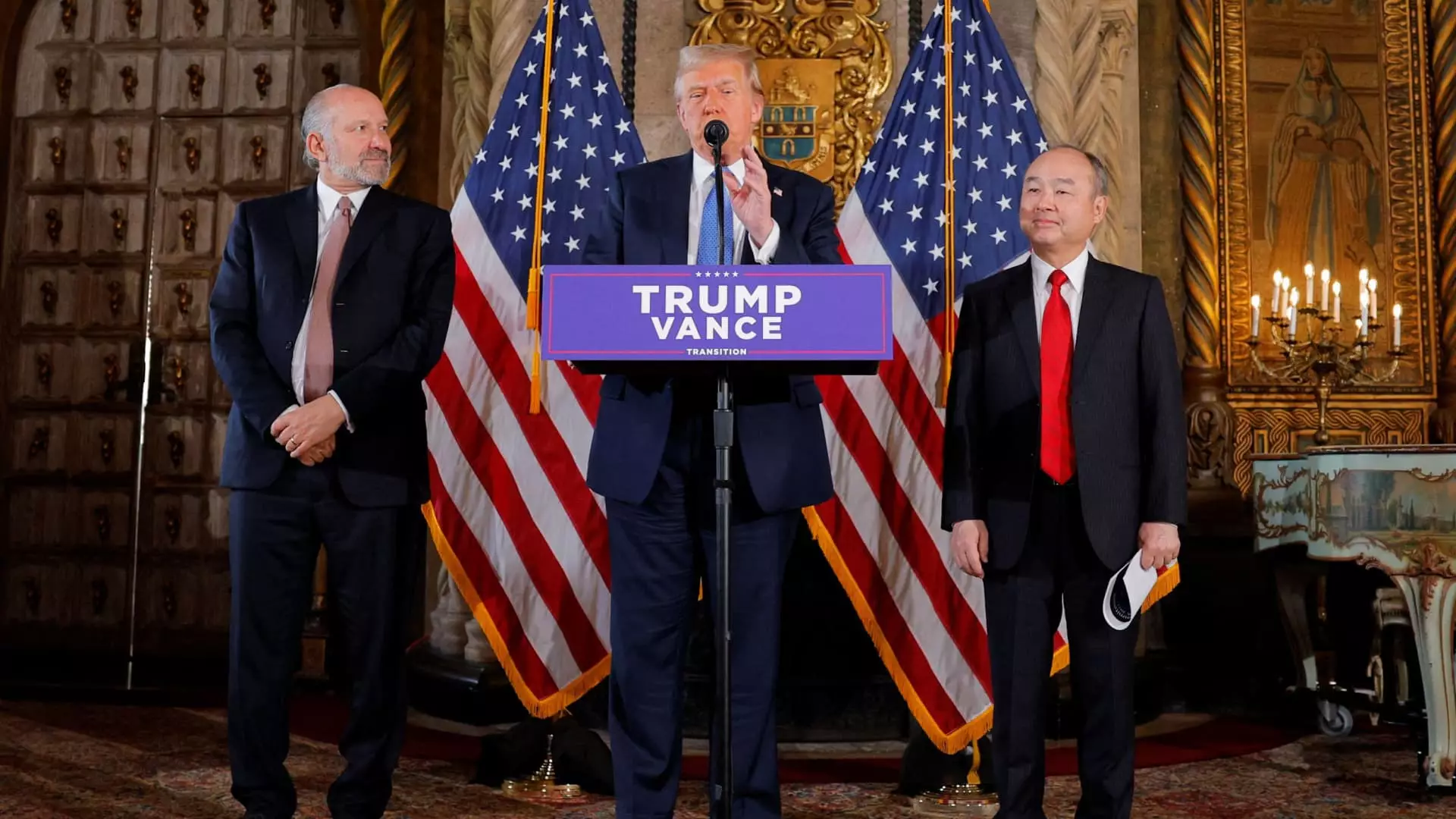In a striking announcement, Masayoshi Son, the CEO of SoftBank, has pledged to invest a staggering $100 billion in the United States over the next four years. This declaration was made during a meeting with then-President-elect Donald Trump at Mar-a-Lago, marking a significant chapter in bilateral corporate and government relationships. The proposed investment is set to create a minimum of 100,000 new jobs, with a specific emphasis on sectors like artificial intelligence and other burgeoning technological infrastructures.
Son’s optimism about the U.S. economy is palpable, as he expressed his increased confidence following Trump’s electoral victory, dubbing Trump a “double down president.” This sentiment echoes a similar sentiment expressed in 2016, when Son previously committed to a $50 billion investment aimed at generating 50,000 jobs. These repeated promises reflect a strategic approach by SoftBank to harness the potential of the U.S. market during periods of economic change and uncertainty.
Historical Context and Future Implications
The announcement by Son is not just a transactional investment; it embodies a larger narrative about tech innovation and economic stability in the U.S. Trump characterized this new initiative as a “monumental demonstration” of confidence in America’s future, positioning it as not merely an investment in jobs but a commitment to fostering the industries of tomorrow. This declaration highlights a critical synergy between government priorities and private enterprise, particularly in fields that promise substantial growth and impact.
Son’s vision indicates a long-term strategy for SoftBank’s capital deployment, suggesting that the funding may originate from various internal resources, including their Vision Fund and their majority-owned chipmaking subsidiary, Arm Holdings. This multifaceted approach not only underlines SoftBank’s adaptability but also its dedication to identifying and securing new opportunities for investment in revolutionary technologies.
The Role of Emerging Technologies
A portion of the committed funds has already been earmarked for previously announced projects, such as SoftBank’s recent $1.5 billion investment in OpenAI, the driving force behind the advanced chatbot, ChatGPT. This serves as a crucial example of SoftBank’s commitment to integrating innovation in real-time, adapting to the fast-paced landscape of tech development.
SoftBank’s overarching strategy revolves around leveraging artificial intelligence and related technologies to catalyze growth. As these industries evolve, the investments made today could very well determine the technological landscape of tomorrow, positioning SoftBank—not just as an investor but as a pivotal player in shaping the future of U.S. technology and economy.
Masayoshi Son’s ambitious plans to invest $100 billion in the United States speak volumes about both his confidence in American innovation and SoftBank’s strategic positioning in the global market. As the investment unfolds over the next four years, all eyes will be on the outcomes—measured not just in the number of jobs created, but also in the impact on the technological maturation of the U.S. economy, paving the way for a brighter, more innovative future.

